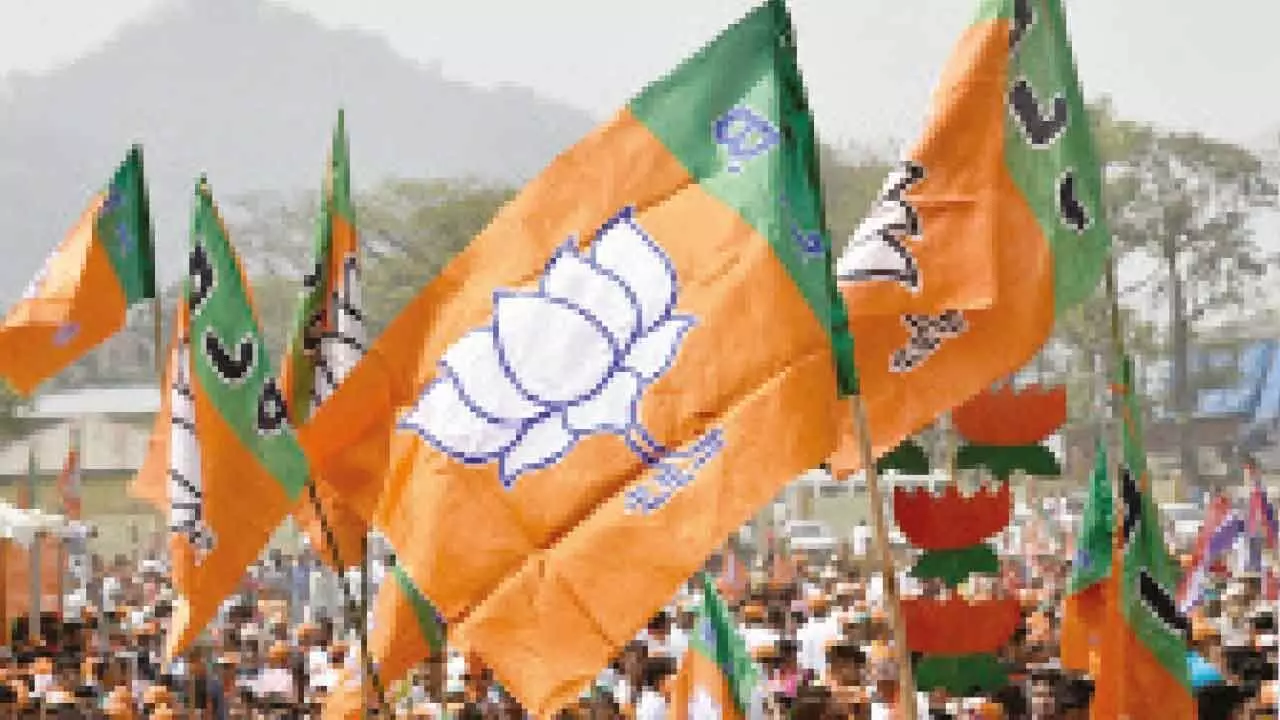Factors that bolster BJP comeback predictions

The 2025 Delhi Assembly elections have garnered significant attention, with exit polls indicating a potential shift in the city’s political landscape.
The 2025 Delhi Assembly elections have garnered significant attention, with exit polls indicating a potential shift in the city’s political landscape.
According to all exit polls, the Bharatiya Janata Party (BJP) is projected to secure an absolute majority in the 70-member assembly, marking a notable resurgence after its underwhelming performance in the previous general elections. This development suggests a possible decline for the Aam Aadmi Party (AAP), led by Arvind Kejriwal, which has governed Delhi for the past two terms.
The AAP, aware of the challenges it faced, was already anticipating a tough battle. Even if it manages to retain power, it is expected to do so with a slim majority. The party has argued that voters favoured another term for them but were hesitant to openly express their support as they fear BJP might put them behind bars. However, pollsters have pointed out that Delhi voters are generally outspoken about their preferences, unlike in Punjab, where people tend to be more reserved in political discussions as they fear the government.
Exit polls attribute multiple factors to the projected BJP surge, including strong anti-incumbency sentiment, which has even cast doubt on the electoral prospects of Arvind Kejriwal himself. Additionally, the BJP’s strategic campaigning and shifting voter sentiments appear to have played a crucial role. Notably, some Muslim voters and clerics have openly stated their support for the BJP over AAP this time, indicating a shift in the minority vote —traditionally a stronghold for AAP and Congress.
The AAP, which emerged from an anti-corruption movement in 2012, has been a dominant force in Delhi politics, winning consecutive terms in 2015 and 2020. However, the party faced significant challenges leading up to the 2025 elections. In September 2024, Arvind Kejriwal resigned as Chief Minister amid allegations related to a liquor policy case, leading to Atishi Marlena taking over the party’s leadership. This leadership change, coupled with internal challenges, may have influenced public perception and voter confidence against AAP.
The Congress, which maintained its anti-Sanatan and anti-Modi rhetoric, struggled to mount an organised and well-structured campaign in the Delhi Assembly elections. The party’s failure to adapt its messaging to voter concerns likely contributed to its weak positioning.
AAP’s anti-corruption stance took a hit due to the alleged liquor scam, which forced Kejriwal to step down. This controversy, along with governance concerns such as inadequate infrastructure development, may have led to voter apprehension. During the campaign, AAP attempted to deflect criticism by blaming neighboring Haryana for various issues, including allegations of attempts at genocide, but this strategy may not have resonated with voters.
On the other hand, the BJP strategically targeted AAP strongholds, particularly in North and Northwest Delhi, to expand its voter base. Initiatives such as distributing keys to flats for slum dwellers in the Wazirpur constituency likely strengthened its appeal. Additionally, traders in traditional commercial hubs like Chandni Chowk expressed dissatisfaction with the AAP government’s performance, further bolstering BJP’s prospects. While exit polls suggest a significant victory for the BJP, the actual results, scheduled to be announced on Saturday will confirm the electorate’s decision, a BJP win would signify a major shift in Delhi’s political landscape, ending AAP’s decade-long dominance and potentially altering policy directions in the capital.
Conversely, if AAP manages to retain power, it will underscore the party’s resilience amid challenges. The Congress’ performance will also be closely watched as it attempts to regain relevance in Delhi politics. With just 24 hours left until the results, all eyes remain on Delhi to see how the political narrative unfolds.

